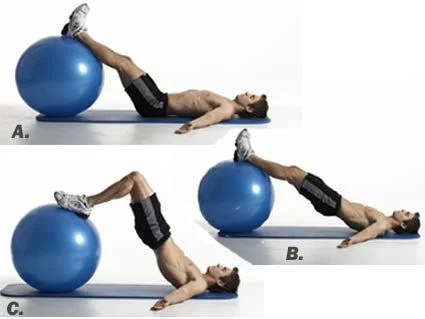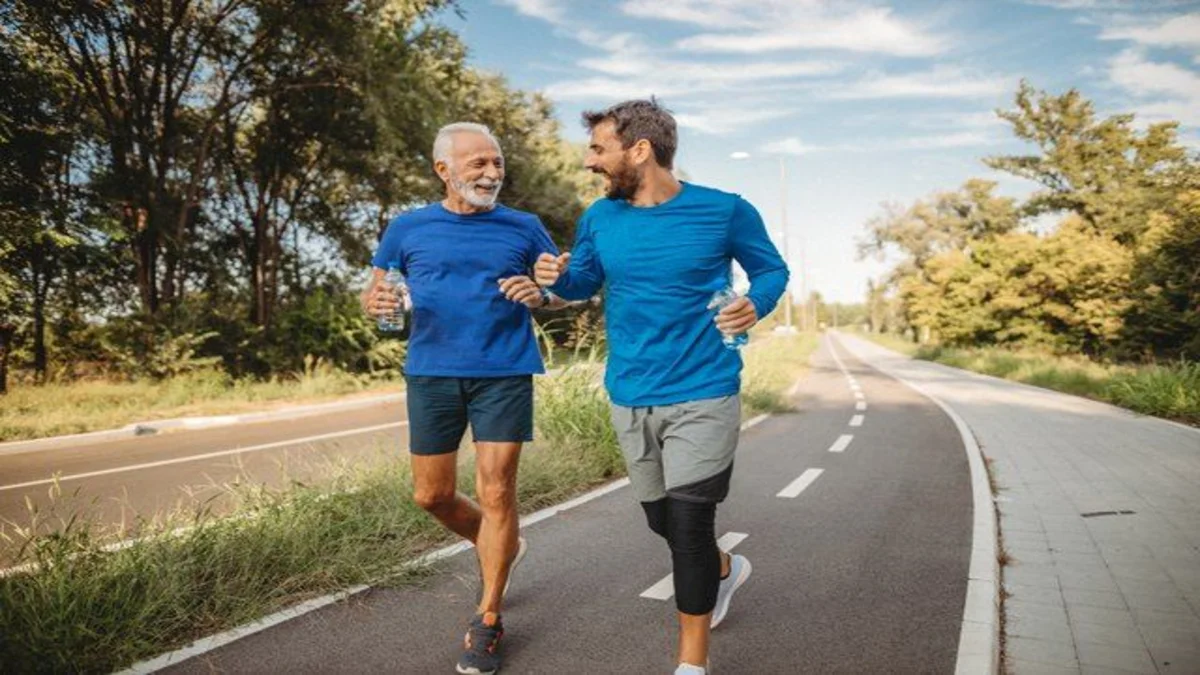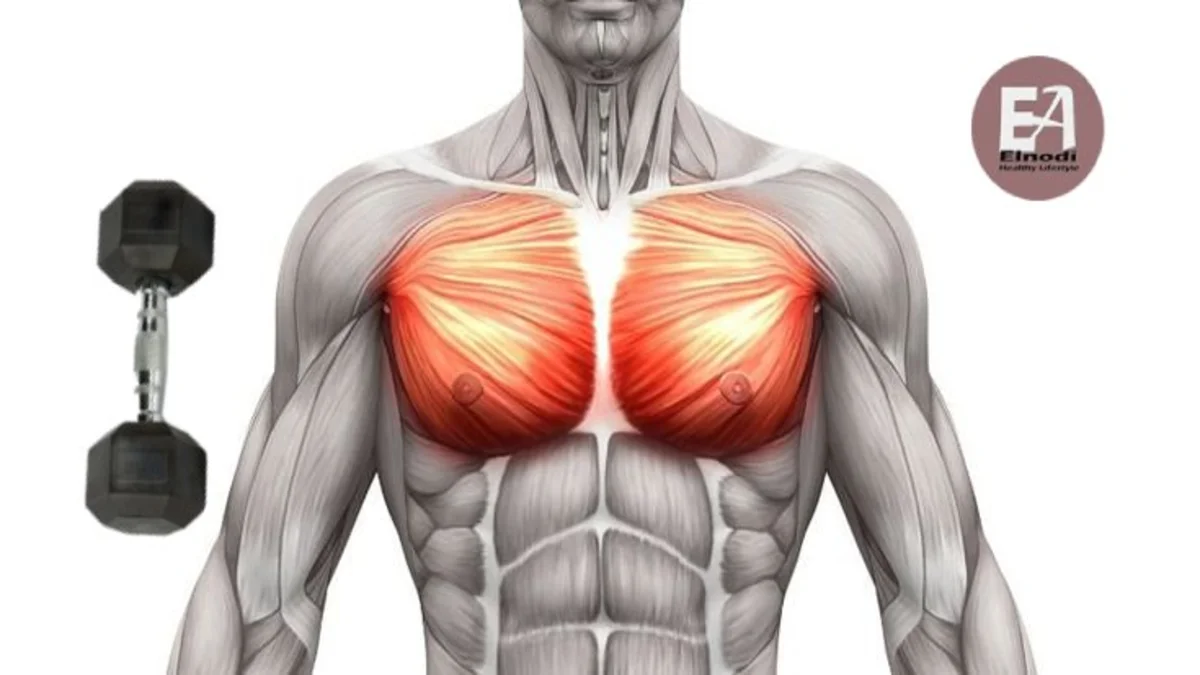Try these three Swiss Ball Leg Curl variations! If you’re looking to target your hamstrings, They’ll work your calves, glutes, and abs too.
The Hamstring Curl is one of the most commonly performed lower-body exercises. It targets the hamstring muscles, which are responsible for powering your knee and hip joints during locomotion. However, many people aren’t doing them correctly. Here are three variations that will make the exercise more challenging and effective.
What is a Swiss Ball Leg Curl?

The Swiss ball leg curl workout, also known as the Swiss ball hamstring curl, uses a stability ball to create instability, forcing you to use your core to balance your body. It works the hamstrings, as the name implies, as well as the glutes, lower back, and abs to a lesser extent.
It is an excellent workout to improve the two basic functions of the hamstring: Hip extension and Knee flexion. The ball lets you train this function of the hamstring while demanding only minimal space. Unlike other gym equipment like barbells and dumbbells, They demand significantly more space and are also relatively expensive. This leg roll is perfect for both beginners and advanced users because several modifications can make it more or less difficult depending on your fitness objectives.
swiss ball leg curl benefits
Highly focused exercises, like the Swiss leg curl, may not bring a wide variety of benefits but they do bring concentrated advantages. Here are some of these benefits:
- Spinal stability and balance – The unstable Swiss ball puts your balance and stability to the test. This improves spinal coordination, flexibility, and overall stability, which is especially beneficial for inactive women. (1)
- Hamstrings are strengthened – The Swiss ball leg curl is a targeted workout that ensures hamstrings are strengthened and endurance is increased. Strong hamstrings are also essential for other fitness activities such as running, jumping, and weightlifting.
- Improves lower body strength – Strong hamstrings can enhance the amount of force produced during lower body activities such as squats, deadlifts, and lunges. As a result, leg curls have become essential for performing other workouts efficiently.
swiss ball leg curl muscles worked
- Hamstrings (2)
- Glutes (3)
- Core (4)
How to do Swiss Ball Leg Curl
Instructions
- Setup in a supine position with your feet elevated on a physioball and your arms extended out to the sides.
- Begin by contracting your glutes and extending your hips until you have a straight line from your heels to your head.
- While keeping your hips extended, curl your heels towards your butt by flexing your hamstrings.
- Return to the starting position slowly and repeat for the appropriate number of repetitions.
Tips
- SHELC = Supine Hip Extension Leg Curl
- When extending the glutes, there should be no pressure or tightness in the lower back. If you feel a pump through your spinal erectors, you’re probably replacing spinal extension with hip extension.
- If you can’t seem to feel your glutes activating, palpate the musculature with your hands and focus on pausing the movement at the peak of contraction.
- Don’t allow the hips to swivel as you curl the legs in.
3 best Swiss Ball Leg Curl Variations
Swiss ball leg curl single leg
- Follow the steps for the conventional Swiss ball leg curl, but only curl the ball with one leg.
- Keep your other leg straight and extended in the air.
- At the height of the movement, pause for a second, then slowly descend the ball back to the starting position.
- Repeat on each leg for 10-12 repetitions.
Swiss ball leg curl with resistance band
- Loop a resistance band around your ankles.
- Follow the techniques for the regular Swiss ball leg curl, but add resistance with the resistance band.
- Begin with a light resistance band and progressively increase it as you gain strength.
- Repeat 10-12 times more.
Swiss ball leg curl with pulse
- Follow the steps for the standard Swiss ball leg curl, but instead of lowering the ball all the way back to the starting position, pulse it up and down a few times.
- This will provide a more rigorous exercise for your hamstrings.
- Repeat 10-12 times more.
Swiss Ball Leg Curl alternatives
- Lying hamstring curl: Lie on your back, legs bent, and feet flat on the ground. Curl your heels towards your glutes while holding a weight plate on your ankles. Pause at the top of the movement before gradually lowering the weight back to the starting position.
- Seated hamstring curl: Place your knees bent and your ankles under the pads of a hamstring curl machine. Curl your heels into your glutes. Pause at the top of the movement before gradually lowering the weight back to the starting position.
- Standing hamstring curl: Stand with your feet shoulder-width apart and hold a weight plate in each hand. Bend your knees and curl your heels towards your glutes. Pause at the top of the movement, then slowly lower the weight back to the starting position.
swiss ball leg curl progression
Beginner:
- Swiss ball leg curl
Intermediate:
- Weighted Swiss ball leg curl
- One-legged Swiss ball leg curl
Advanced:
- Swiss ball leg curl with resistance band
- Swiss ball leg curl with pulse
swiss ball leg curl vs. hamstring curl
Both the Swiss ball leg curl and the hamstring curl target the hamstrings, but there are several major differences between them.
The Swiss ball leg curl is a more functional exercise because it resembles running and jumping movements. It also necessitates more core stability because you must balance on the Swiss ball while executing the workout.
The hamstring curl is a more isolated exercise because it only works the hamstrings. It’s also a wonderful workout for beginners because it’s simpler to do than the Swiss ball leg curl.
| Feature | Swiss ball leg curl | Hamstring curl |
|---|---|---|
| Muscle group worked | Hamstrings, glutes, core | Hamstrings |
| Difficulty | Moderate | Easy |
| Equipment needed | Swiss ball | Hamstring curl machine |
| Functional | Yes | No |
How to do hamstring curls without a ball?
Lying hamstring curl
- Lie on your back, legs bent, and feet flat on the ground.
- Curl your heels towards your glutes while holding a weight plate on your ankles.
- Pause at the top of the movement before gradually lowering the weight back to the starting position.
- Repeat 10-12 times more.
FAQs
How do you strengthen your hamstring curls?
What are the phases of leg curls?
How many reps for leg curls?
What is the best type of hamstring curl?
References
- Drake, Janessa DM, et al. “Do exercise balls provide a training advantage for trunk extensor exercises? A biomechanical evaluation.” Journal of manipulative and physiological therapeutics 29.5 (2006): 354-362.
- Sekendiz, B., Cug, M., & Korkusuz, F. (2010). Effects of Swiss-ball core strength training on strength, endurance, flexibility, and balance in sedentary women. The Journal of Strength & Conditioning Research, 24(11), 3032-3040.
- Wright, G. A., DELONG, T. H., & GEHLSEN, G. (1999). Electromyographic activity of the hamstrings during the performance of the leg curl, stiff-leg deadlift, and back squat movements. The Journal of Strength & Conditioning Research, 13(2), 168-174.
- Singara, S., Thajudeen, A., Kumar, R. V., Maria, P., & Vasanthan, R. (2023). Comparison of Swiss Ball Versus Theraband Exercise on Core Muscle Flexibility, and Balance, in Collegiate Cricket Players: A Randomized Controlled Trial. Collegiate Cricket Players: A Randomized Controlled Trial (June 22, 2023).





